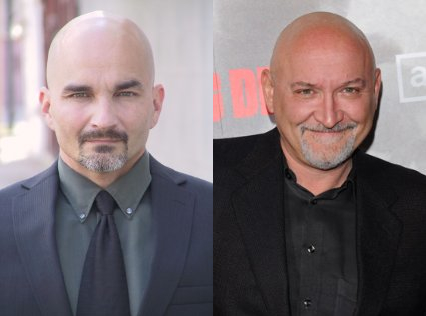Studio: Vertical Entertainment
Director: Swamy Kandan
Writer: Swamy Kandan, Jason Whittier
Producer: Swamy Kandan
Stars: Jonathan Bennett, Ali Faulkner, Richard Riehle, Stelio Savante, Tobi Gadison, Karin Duseva, Kef Lee
Review Score:
Summary:
A journalist and a screenwriter discover that a small Massachusetts village harbors a centuries old deadly secret.
Review:
Witchcraft. Voodoo. Deadly outbreaks. Salem, Massachusetts. The year 1666. Black-robed cult members of a secretive community gathered in a cemetery. Any one of these ingredients can pepper the pot for horror or for mystery and “The Secret Village” has them all. Yet whatever frights and intrigue “The Secret Village” may conjure up are cancelled out by a frustrating film structure that works against the storytelling.
Young journalist Rachel moves to the New England home of infamous witch trials to investigate a secret village known for its history of fatal ergot poisoning outbreaks. Outsiders are unwelcome in the cultish community, but Rachel makes two contacts willing to help her break the story, even though lives are risked by doing so. Having just been met by his ex-girlfriend’s boot, struggling screenwriter Greg rents a room in the same house as Rachel and the two strike up a romance. Rachel and Greg have more to worry about than robed figures lurking in the shadows, however. A pair of mysterious men armed with syringes is also taking people against their will for purposes unknown.
“The Secret Village” uses a non-linear narrative, but not in a way that makes sense for telling its tale, such as in “Pulp Fiction” or “Memento.” Scenes in “The Secret Village” jump back and forth through time often by mere minutes, yet the jigsaw assembly of the completed scene does not always hold a compelling revelation. Instead of playing with the viewer’s expectations or distracting attention while the real illusion is created, like “The Sixth Sense” did, attempts at such tricks in “The Secret Village” come off as though someone mislabeled clips in the editing bay and accidentally put the pieces in a random order.
Kef Lee of "The Secret Village" and Frank Darabont: Separated at birth?
In one scene, Greg visits the coffee shop where Rachel works to check on her and he seemingly frightens away one of Rachel’s stalkers. She and Greg converse, head out to the parking lot, and say their goodbyes. A few short scenes later, Rachel sips from a cup while gazing out her front room window. She thinks back on her parking lot encounter with Greg and this time the scene plays with a kiss slipped in between their dialogue. Still later, Rachel revisits that coffee shop moment again. This time, the scene is replayed with Rachel confronting her stalker before Greg enters.
What the film means to accomplish by breaking these segments apart and spreading them out of order between other scenes is unknown. It should be teasing the mind with a-ha moments that change the way something was perceived earlier. Instead, it fosters confusion that the movie was not assembled properly.
The “twist” ending justifies some, though not all, of the jumbled sequencing. There is a purpose behind why certain scenes do not play in their entirety the first time. But the movie employs the technique in instances where it is not called for, which only lessens the impact in the moments where it should be working in the story’s favor.
Ali Faulkner and Monica Keena: Separated at birth?
Although the ending clears up much of the confusion, the final revelation does not explain the way that several of the characters behaved throughout the movie. This is the type of film that when looking back on it, one can see how the events that took place do not entirely add up given the truth behind the plot’s setup.
Even re-edited in a chronological format, “The Secret Village” would still be disappointingly dull. For a story that includes witches, cults, and a covered up conspiracy of mass fatalities, the mystery fails to engage and the tension is non-extant. Black-robed figures should inspire dread, but these cultists skulk about in a very matter-of-fact manner. The faces beneath their hoods are clean-shaven and nothing about their movements reads as sinister. In fact, their origins are never explored and they do next to nothing in the story. They may as well be benevolent monks wandering in an abbey.
Aside from one blue tinted moment of sleeping briefly in a car, the entirety of “The Secret Village” takes place during daylight. Without darkness and moonlit shadows, the mood always feels too safe and welcoming.
Ali Faulkner is well suited for her role as Rachel, though the script never challenges her, or anyone else for that matter, to do anything bold or unique. For all its attempts at an unconventional editing style, “The Secret Village” is a fairly conventional story that ultimately collapses from a disjointed delivery and a disappointing resolution.
Review Score: 35








In hindsight, maybe the more muted “28 Years Later” had to walk so the more meaningful “The Bone Temple” could run.